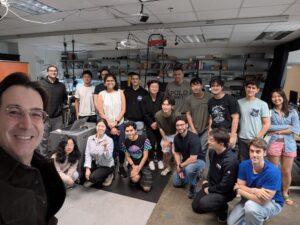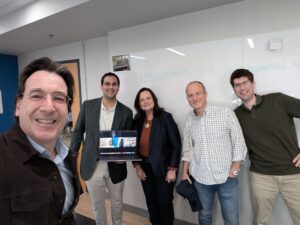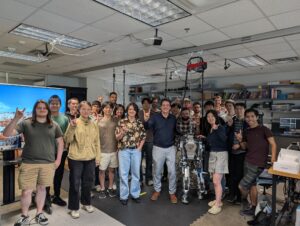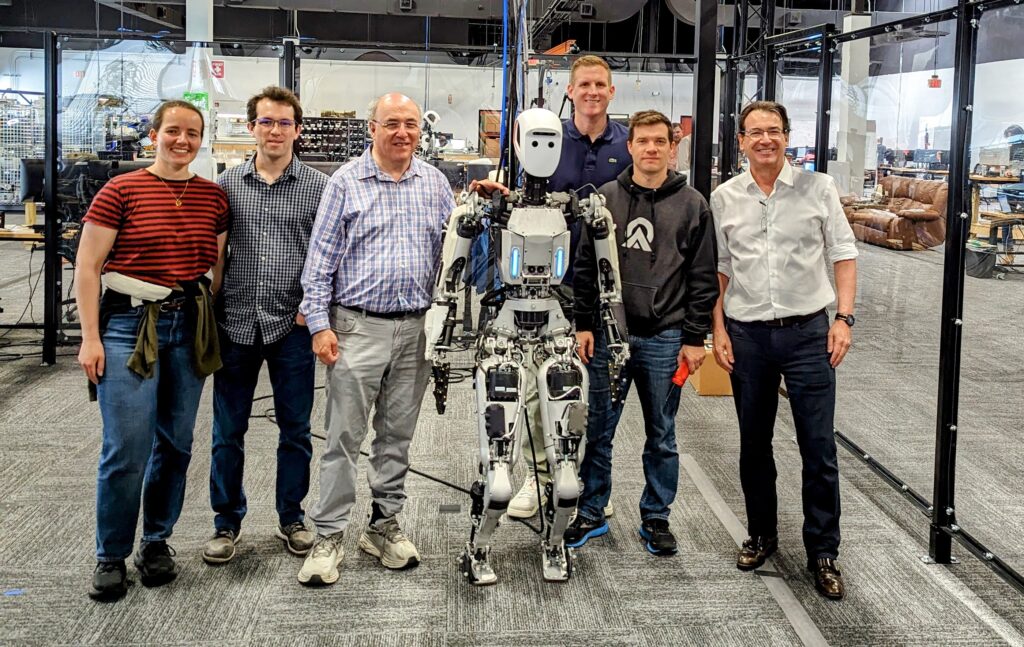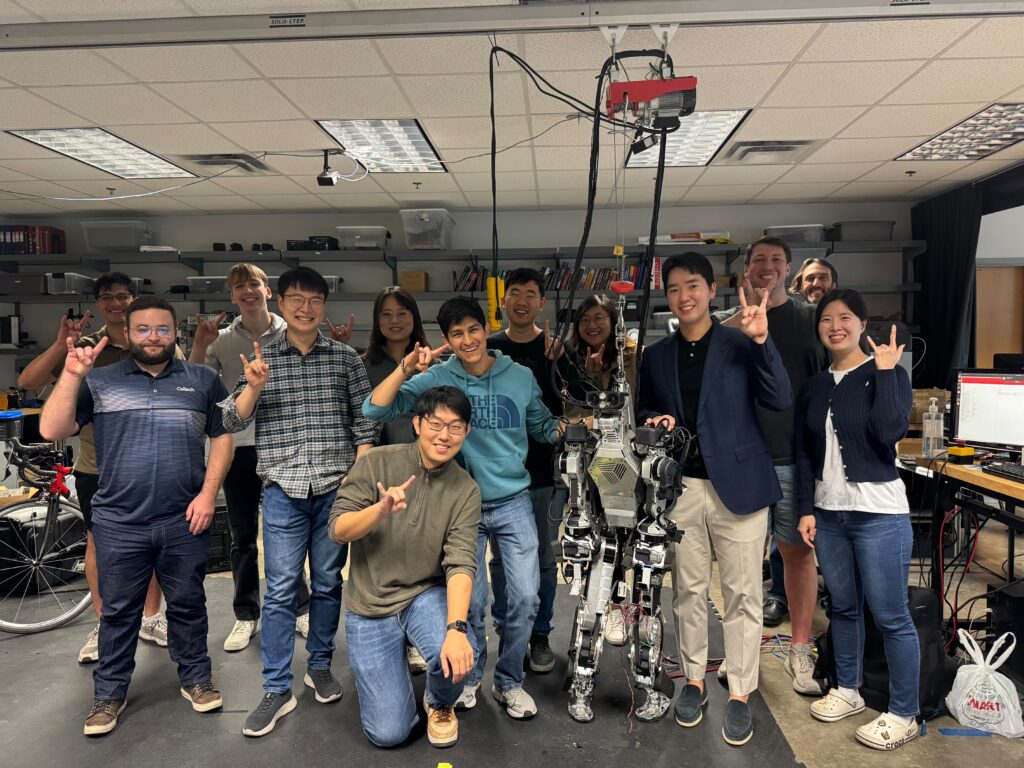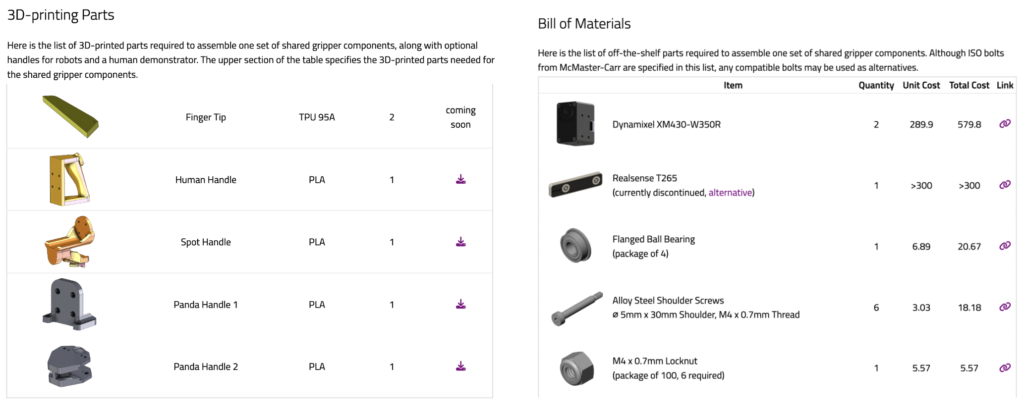Huge shout-out to our UT Austin students, engineers, and faculty from ASE and JSG who participated in this event! We recently took part in the XPRIZE Wildfire World-Wide Competition, making up one of 13 teams globally. We were led by our own faculty: Profs. Luis Sentis, Greg Zwernemann, and James Thomson, and we had some brilliant international collaboration from U. Southampton’s Profs. Mohammad Soorati and Klaus-Peter Zauner. A huge thank you to our sponsors AIVE AI Systems, Leo Lion of UK, and the Sentis-Ben-Yakar Family!
Uncategorized
Tech Noir – An HCRL Tour
HCRL Inspires Students to Create Wildfire Aircrafts
PhD Defense Celebrations in the Lab
Congratulations to the HCRL students for their PhD’s
- Optimization Approaches for High-Performance and Efficient Utilization of Redundancy in Robotic Systems by Jeeeun Lee
- Towards Human Centered Deployment of Autonomously Exploring Robots by Ryan Gupta
- Advancing Frontiers of Path Integral Theory for Stochastic Optimal Control by Apurva Patil
HCRL Spin-Off Apptronik Secures $350M to Revolutionize Humanoid Robotics
Apptronik, a spin-off from the HCRL, co-founded by former student Nick Paine and PI Luis Sentis, secures $350M to advance Humanoid Robots. A great example of how “What Starts Here, Changes the World!” Click here or on on the image to read the full news article.
Final Class Projects for Learning for Dynamics and Controls Class
Panel on Responsible AI Innovation
Moderator Luis Sentis (Chair of Good Systems, UT Austin) engaged with panelists Chelsea Collier (Digi.City), Matt Lease (UT Austin School of Information), Daniel Culotta (City of Austin), Junfeng Jiao (UT Austin School of Architecture), and the AILive team, to deliver an engaging and insightful discussion on “Responsible AI Innovation.”
Celebrating Seung Hyeon Bang’s PhD
Design and Assembly of LEGATO Handheld Learning Gripper
We are sharing, open source, our new design and assembly for our LEGATO Handheld Gripper for cross-embodiment robot learning. Instructions for design and assembly are here below:
New Hardware-Accelerated Ray-Tracing Method for Enhanced Volume Mesh Collision Detection
In collaboration with Dexterity Inc., we introduce a unique hardware-accelerated ray-tracing method for direct volume mesh-to-mesh discrete collision detection, which particularly excels in continuous collision detection. Kudos to Andrew Bylard, who guided this work following his groundbreaking research, and to my student Sizhe Sui, who led the technical implementation.
Link to Paper:




